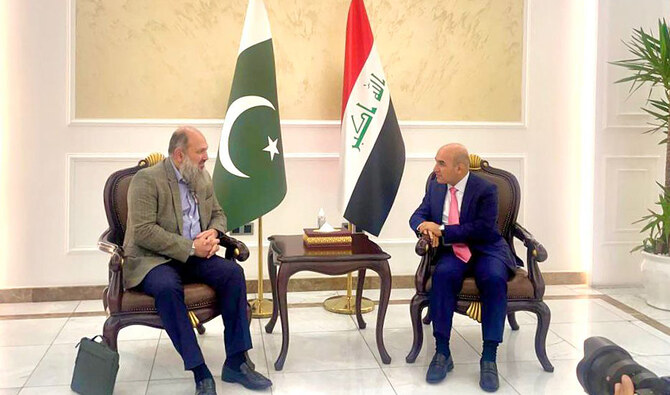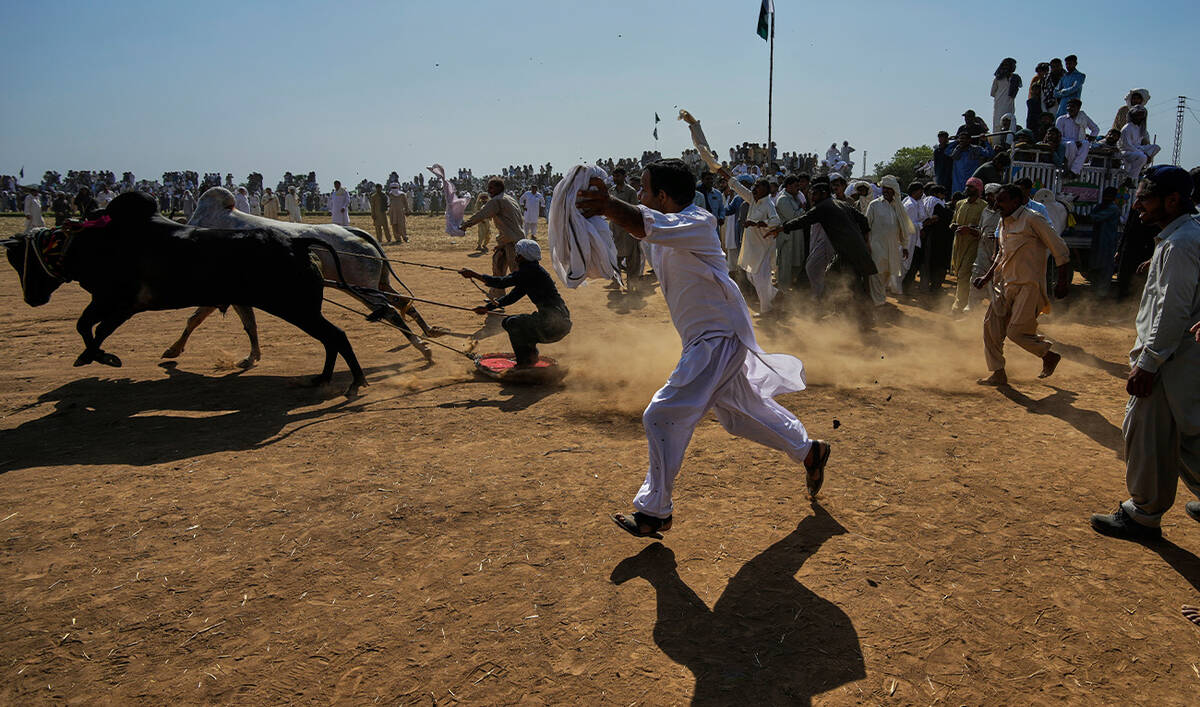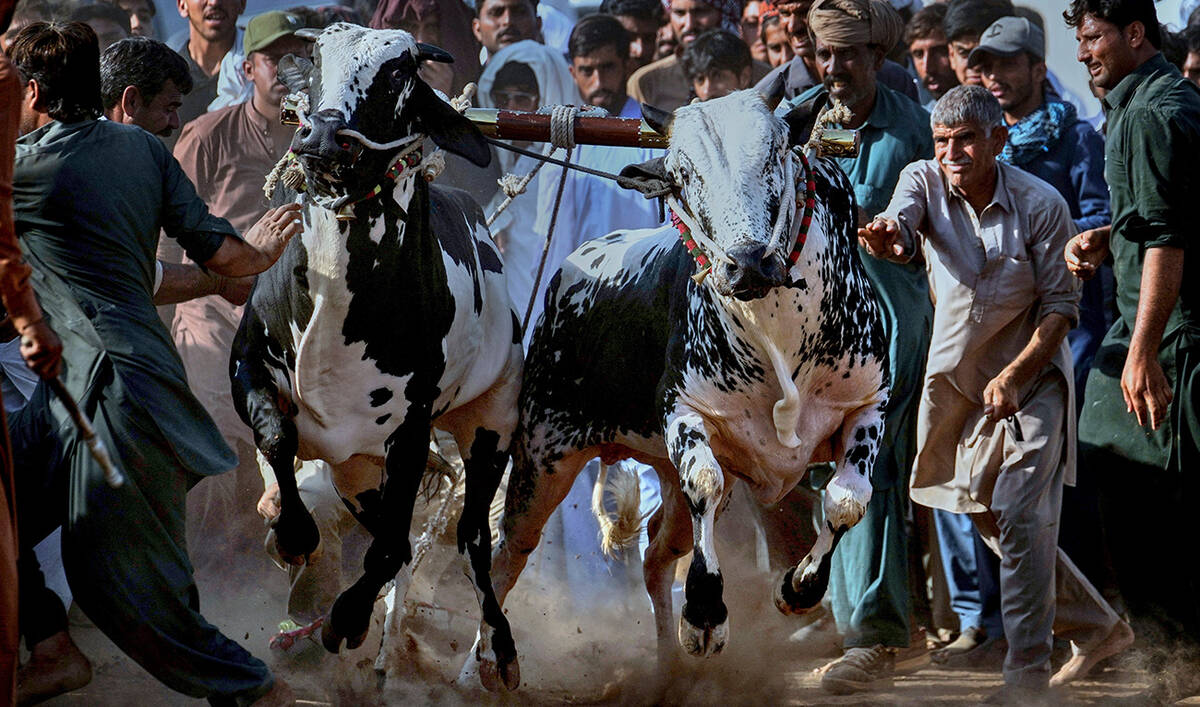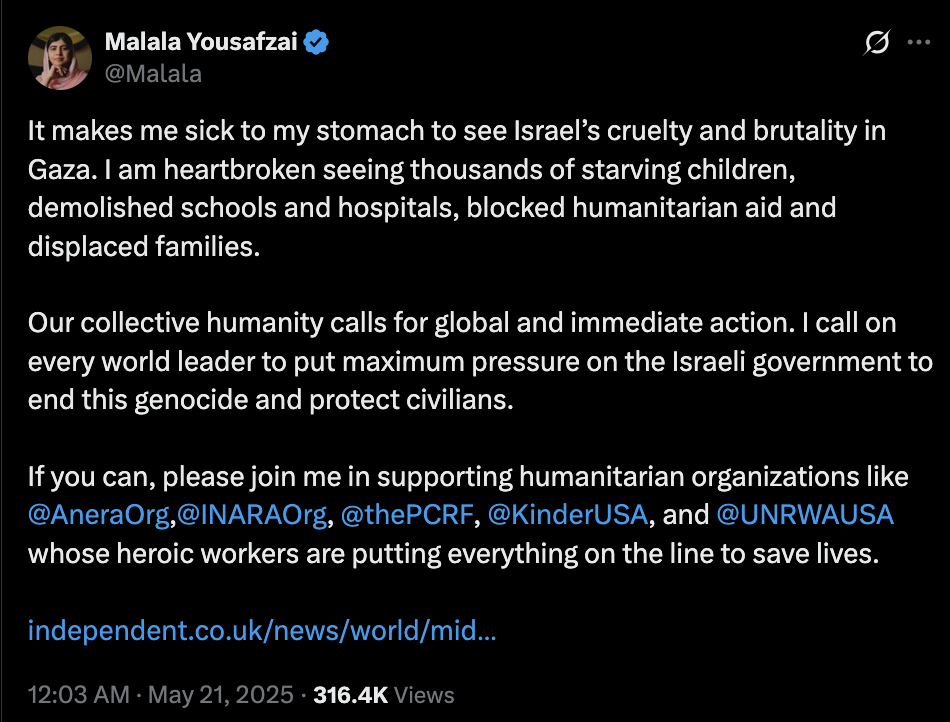ISLAMABAD: Pakistan Commerce Minister Jam Kamal arrived in Baghdad on Monday to lead the Pakistani delegation at key trade talks that are being held after more than two decades, the Pakistani commerce ministry said.
Kamal will lead the Pakistani side at the 9th session of the Joint Ministerial Commission (JMC), marking a significant step in strengthening bilateral relations between Pakistan and Iraq. This is the first session to take place since the previous JMC meeting held in Islamabad in 2001.
Upon his arrival at the Baghdad International Airport, the Pakistani commerce minister was received by Iraq’s Minister for Housing and Construction Bangen Rekani, Pakistan Ambassador to Iraq Muhammad Zeeshan Ahmed, and Pakistani Ministry of Economic Affairs Secretary Dr. Kazim Niaz.
“The 9th JMC session, scheduled during Mr. Jam Kamal’s visit, is expected to open new avenues for economic collaboration and further solidify the longstanding friendship between the two nations,” the Pakistani commerce ministry said.
“This visit underscores Pakistan’s commitment to fostering stronger ties with Iraq in various domains, including trade, infrastructure, and regional development.”
Relations between Pakistan and Iraq have received a boost with a number of ministerial-level exchanges in recent years. The two countries have held discussions on enhancing defense and law enforcement cooperation, focusing on counterterrorism, counternarcotics and intelligence-sharing.
The Pakistani commerce ministry said the historic nature of the JMC session highlights mutual determination of both countries to deepen their economic partnership after a hiatus of over two decades.
Kamal also discussed a range of topics of mutual interest, including enhancing trade ties, boosting economic cooperation and fostering closer collaboration in key sectors, in his meeting with the Iraqi housing and construction minister.
“Both sides expressed optimism about revitalizing bilateral engagements and addressing shared challenges,” the commerce ministry added.



















